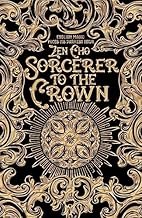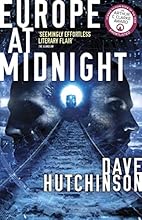Today Richard Jones, from Tangent Books has dropped by to talk about Crowdfunding.
Take a look at his Fundsurfer page
here

I wonder how many friendships have been broken and maybe even
relationships ended by crowdfunding.
You see, a crowdfunding campaign isn’t all about raising money,
it’s mainly about trust and expectations. You trust that certain friends,
family and colleagues will support you. You expect them to do so because you
sponsored their kid for a fiver or donated to a charity when they asked you.
When those people don’t respond to your crowdfunding campaign,
it’s all too easy to take it personally. Although with some people it’s
actually quite cathartic – deep down you always thought they were a tosser and
their lack of support confirms this.
But sometimes it’s hurtful. People you like and respect, shun,
spurn and avoid you. Why?
Before I started a campaign to fund the reprint of Stanley
Donwood’s lost ‘classic’ Catacombs of Terror! I was warned that the above scenario
is common to everybody who takes the crowdfunding route.
The solution is twofold.
1. Don’t take it personally. Difficult.
2. Be very specific. Easy.
So, I compiled 20 lists of
10 people (to reduce chances of emails going in spam folder) and emailed the
same general message. It asked for their support, pointed out that many people
who said they would back the campaign also asked to be reminded, and gave them
the option to be removed from the list if they were not interested.
Five people said they
didn’t want to contribute, about 20 contributed, another 10 asked to be
reminded closer to the deadline. Some of these were people whose campaigns I
have personally backed.
Great. We hit 10 per cent
of our funding and had about 150 people who wanted reminding. So I was fairly
confident that the next email would get a decent response. Instead we got
zilch, nada, zero from that mail out, although we did get some pledges from
people we don’t know.
So what next? Well it’s
time to get personal and invoke solution 2 (above). I’ll now email people
individually and specifically ask them to pledge and to share the links on
Facebook, Twitter etc. It’s not a question of harassing people, I just need to
know whether they intend to support the project. If they don’t want to I can
concentrate on finding new people who are interested in the book. And of
course, I will never help those who rejected me or members of their family in
any way, ever again (joke).
But the really important
thing is to look at the big picture. Crowdfunding is vital for radical,
independent publishers such as Tangent Books. It’s a way of communicating with
a global network who share Tangent’s values.
I’ve worked in publishing
all my adult life, as a newspaper journalist and sub-editor, magazine editor
and book publisher. I see my role as disseminating information and I’m really
not too bothered whether that’s in print or digitally. For me, the message is
of primary importance, the format is of secondary consideration.
Crowdfunding offers a
radical solution to a retail industry that has centralised (Waterstones) and globalised
(Amazon). Let me tell you, there is no pleasure in dealing with Waterstones
while Amazon represents some of the things I hate in life – it ruthlessly
exploits people, it is greedy, it gives nothing back. It’s also essential for
publishers.
So crowdfunding offers an
alternative to the all this. Sure, it’s frustrating, yes you feel let down by
people you thought would behave better and of course, you’re overwhelmed by the
generosity of many people.
Supporting my crowdfunding
campaign is a political act. It’s a bit like buying Fairtrade products. You can
choose to support independent publishers and authors or you can fuel the greed
of Amazon.
And look, I haven’t even
told you anything about the project. Go look for yourself. Share the link, make
a pledge, the book is going to be gorgeous. And if you know anything about
collecting books, check out the signed copies of the original edition. They
could be worth a few bob in years to come.
Go to…
https://www.fundsurfer.com/project/catacombs-of-terror-by-stanley-donwood
--------------
Back in 2012, before starting this blog, I reviewed Stanley Donwood's Household Worms on Amazon - I gave it 5 stars. Bristol Book Blog thinks you should go and fund this project, because we want to read the book & expect it to be on the list of "Year's Brilliant Reads"










